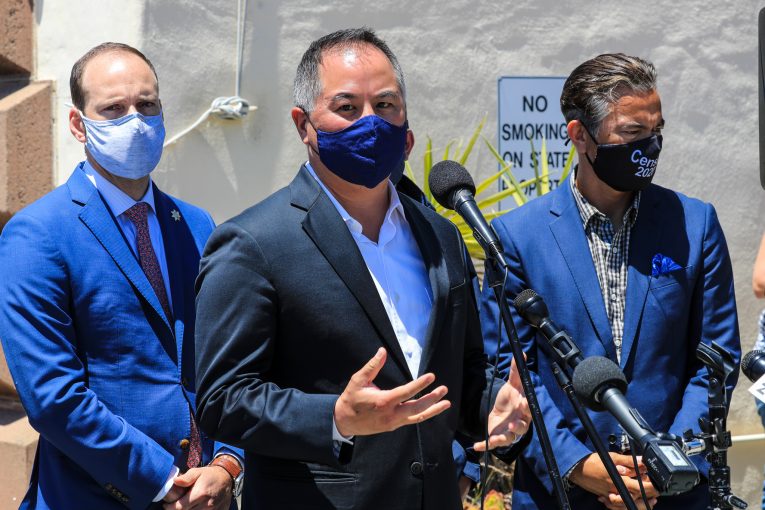

By Michael McCutcheon
SACRAMENTO – The ACLU this week heavily criticized a California measure by San Francisco Assemblymember Phil Ting (D) that “purports to limit the use of face surveillance, but…legislates the authority of police to build and deploy powerful mass surveillance systems that would erode Californians’ civil rights and exacerbate racial profiling.”
AB 642, according to a press statement by the ACLU, is “a wolf in sheep’s clothing.”
Carlos Marquez III, the Executive Director of ACLU California Action, stated, “Backed by the police, this bill would normalize the pervasive use of face surveillance technology, giving law enforcement agencies across the state a free pass to run mass surveillance programs that identify and track us whenever we’re in public.”
“The ACLU’s position is that there are no acceptable standards under which police can use face surveillance without worsening racial disparities in policing, repressing freedom of speech, undermining the right to protest, and violating our privacy,” said the ACLU.
Nationally, earlier this month, members of Congress sought to reintroduce legislation that would ban the government’s use of facial recognition and other biometric technologies.
Senator Edward Markey (D-MA) said, “The year is 2023, but we are living through 1984. The continued proliferation of surveillance tools like facial recognition technologies in our society is deeply disturbing.”
This legislation was introduced the same day an investigation by the Washington Post revealed a covert facial recognition project led by the FBI and the Department Defense for the intent of mass domestic surveillance.
The ACLU and the various members of Congress who reintroduced the legislation have expressed concerns over the issue of racial recognition, noting Black men were misidentified by police facial recognition, including Robert Williams, who “was handcuffed in front of his daughter and placed in a Michigan detention center based on a misidentification,” according to the ACLU.